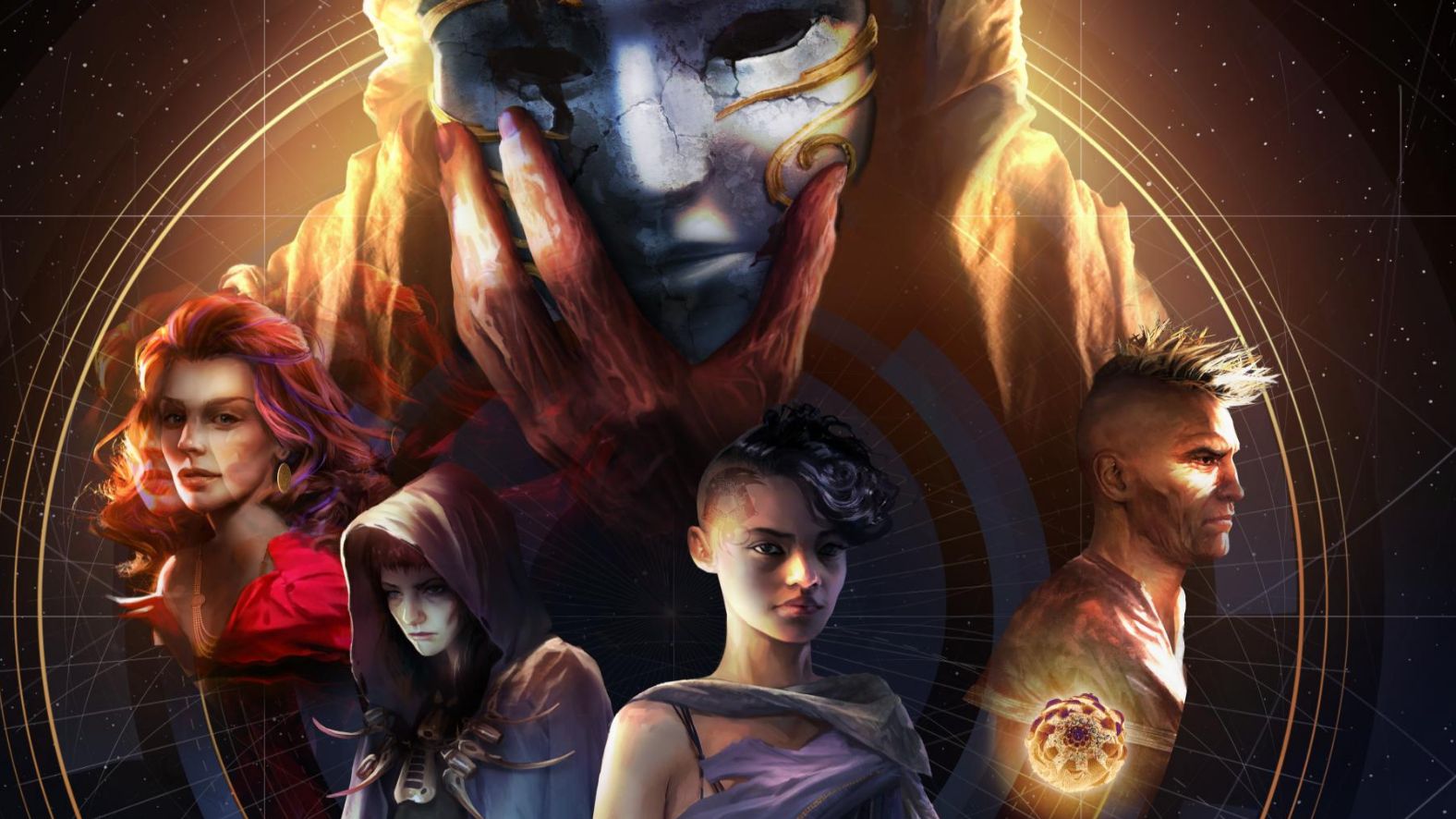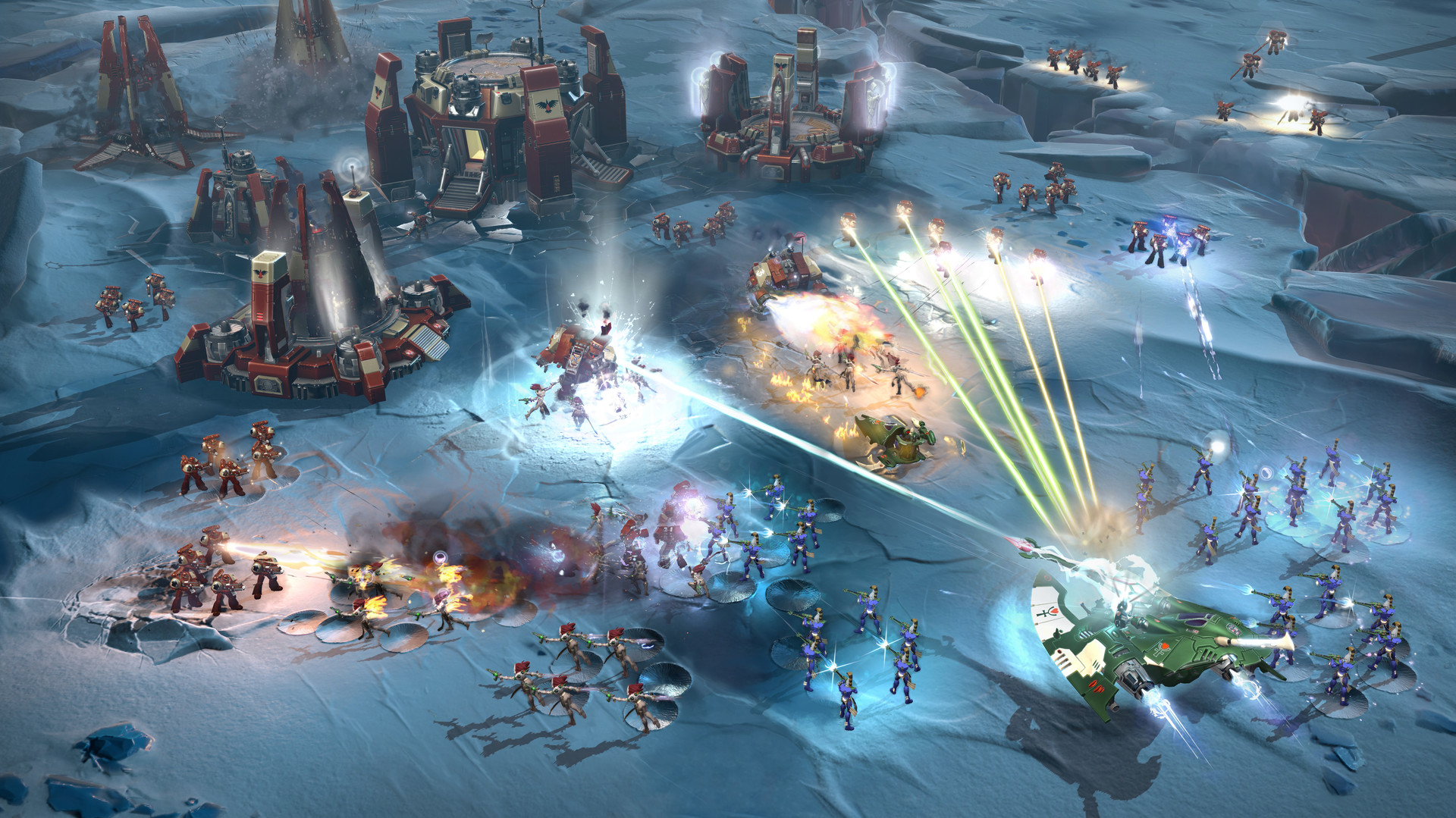
The highs
Tom Senior: G-g-g-g-godlike!
I am loving Tides of Numenera at the moment. Unlike its siblings in the cRPG revival movement, it doubles down on the roleplaying aspect rather than the number-crunching, party-building, combat-focused side of things. As a soul sleeved in a body recently abandoned by a powerful being called the Changing God, there are a lot of decisions to make about who you want to be. I choose to tell everyone I am the Changing God. This is particularly impressive to members of the Cult of the Changing God, who now do pretty much what I tell them. I’ve been swapping stories about my adventures with Chris and Andy in the office, and it’s impressive how differently things can turn out if you play as a lying arsehole.
Even if the art is a bit off for my tastes, the writing is excellent, and sidequests mesh with one another intelligently. I have never played the Numenera pen and paper roleplaying game, and I’ve found the videogame to be an excellent introduction to that universe. It’s an exciting blend of high-fantasy adventure, sci-fi intrigue and trippy-as-balls journeying through pan-dimensional spaces. In my favourite quest so far I helped a crippled mining robot to have children. Good times.
Tom Marks: VRiety
LG is entering the VR headset race, but designing its entry to work with SteamVR and the existing Lighthouse base stations that the HTC Vive currently uses. Wes got to try it earlier this week and came away impressed, but the most exciting part to me is how this shifts what the VR market looks like. It's no longer just a race between Valve and Oculus, SteamVR now has choices within it—which means competition without exacerbating the exclusivity war between platforms. More options is nearly always a good thing, and I'm excited to see how this pushes LG, HTC, and any other hardware company Valve might be talking with to innovate. And hopefully it will drive the cost of VR down even further, after the Oculus Rift got a big cut this week.
Samuel Roberts: Feeling groovy
As if Chucklefish hadn't already cornered the idea of rad new games that look a bit like rad old games, here comes Wargroove, which takes its cues from Nintendo's abandoned-for-some-reason Advance Wars, a turn-based strategy series that I definitely didn't emulate for the entire summer of 2004. With modding support and online play, this already looks like a hit in the making—while we're not short on this sort of game on PC, this kind of Nintendo-infused art direction is much rarer and harder to do well.
Keep up to date with the most important stories and the best deals, as picked by the PC Gamer team.
Joe Donnelly: System stunner
When Nightdive's System Shock remake was delayed last year I was a wee bit sad. I mean, I totally understand that games get delayed with the best of intentions, but the fact is: I'm really quite looking forward to returning to the Citadel Station—so much so that 2018 just seems so far away from now. As you can imagine, I was pleased to see new in-game pre-alpha footage emerge this week which flaunted the familiar space-flung locale with its hordes of vicious alien foes all tarted up on PC. Furthermore, since we were first shown moving pictures of Nightdive's reimagining of the 1994 classic, it's made the jump from Unity to Unreal Engine 4.
Yes, 2018 is a ways away yet, but you should totally head over here to check out how System Shock is coming along.

Tim Clark: Dawning on me
I’m not a strategic guy, as even a quick glance at my CV tells prospective employers. And the last RTS I spent any real time with was Starcraft II, circa Wings of Liberty. But this week I got to take a look at Dawn of War III, which for now I am under orders not to discuss the details of. However, as someone who created and painted his own Space Marine chapter back in the day, lore and all, I think I’m safe to say that 40K superfans are going to be pretty happy. Samuel is off to the studio next week, so expect to hear much more from us shortly.
Chris Livingston: Full sail
In a sea of new games at GDC, it can sometimes be the glimpse of something familiar that draws the eye. I spotted Far: Lone Sails on a distant monitor, and immediately knew I'd seen it before, back when Evan wrote about it in June. I got to play the demo on Thursday and really enjoyed it. In Far, you pilot a hulking vehicle through an apocalyptic setting, feeding it the fuel you collect along the way. The most impressive thing about the demo, aside from the lovely visuals and atmospheric music, is that it tells you almost nothing about how it works, and it doesn't need to.
It's one of the most intuitive games I've played in a long time. Other than explaining how to move left and right and pick up objects, Far lets you figure out everything else on your own: how to put the fuel into the engines, how to attach and raise a sail, when you need to take the sail down... none of that is explained. I'd like to take some credit for being incredibly clever, but the kudos goes to the game itself: it tells you what you need to know without words. Even when lightning struck my ship and the engine caught fire, I immediately knew how to put it out. I'm really looking forward to playing more.
The collective PC Gamer editorial team worked together to write this article. PC Gamer is the global authority on PC games—starting in 1993 with the magazine, and then in 2010 with this website you're currently reading. We have writers across the US, UK and Australia, who you can read about here.


